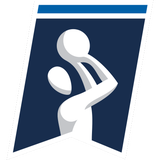
NCAA autonomy group approves new concussion protections
SAN ANTONIO (AP) The NCAA's major conferences approved a rule Friday requiring that school medical professionals have autonomous and final authority in deciding when an athlete returns to play from a concussion or other injury, a move lauded as a significant health and safety protection.
Although schools are already required to have concussion protocols, the move defines who are the primary medical providers in key decision-making roles and sets a strong wall between team doctors, trainers and coaches, officials said.
''I believe it's the most important piece of legislation in the history of the NCAA,'' said Brian Hainline, the NCAA's chief medical officer and a neurologist. ''It really defines who the primary athletics health care providers are.''
The rule requires schools ensure that no coach have hiring, retention or dismissal authority over the team doctors or trainers.
The rule was proposed by the Big 12 and passed at the NCAA annual convention. University of Texas women's athletic director said Texas physicians and trainers already control return-to-play issues, and believes most schools do the same. But she said it was necessary to make it a rule.
''Our students are other people's children,'' Chris Plonsky said. ''If I was a parent, I'd want to know who makes that decision. It should be someone with medical authority.''
The rule also means that even if an athlete seeks an outside second opinion, the school's medical officers still have the final say, Hainline said. And it should remove any potential pressure from coaches or others to get an athlete back on the field.
''I think there has been concern expressed there are sometimes influences on the athletic trainer and physician to get them to return to play sooner than they are ready to,'' Hainline said. ''No one can challenge their authority.''
Southeastern Conference Commissioner Greg Sankey said the conference endorsed medical autonomy in 2014.
''We didn't need a rule to get there, but it's healthy to make that clear,'' Sankey said.
The rule specifically applies to the NCAA's autonomy group, comprised of the five major football conferences, but other NCAA schools are encouraged to adopt similar guidelines.
In other votes Friday, the autonomy group delayed action on several proposals limiting time demands on athletes, including mandated time off after a season and weekly off days. The group voted to bring those issues back at the 2017 NCAA convention.
''I think we all agree there needs to be a retooling of not only how we count the hours, but also what the expectations on a student-athlete are,'' Big 12 Commissioner Bob Bowlsby said. ''The life of a Division One student athlete is not for the faint of heart. They know that when they sign up.''
The group adopted a resolution pledging to come back next year with a proposal that will consider a two-week postseason break, weekly time off, and a mandatory eight-hour overnight break from sports requirements.
The delay upset a few student-athlete members of the autonomy group who lobbied for immediate action.
''If we come back a year from now with a comprehensive action plan, that's ideal. That's what student-athletes need,'' said Ty Darlington, the center on Oklahoma's football team. ''I feel like this should have been done already ... We keep pushing it back. It's very frustrating for us it wasn't ready for this convention.''
The autonomy group passed a rule allowing high school baseball players to hire agents when negotiating with professional teams before they enroll in college.
Texas Tech baseball player Anthony Lyons called it an important step for players and their families when deciding whether to turn pro or go to college when ''life-changing money'' is being offered.
''Right now, there's a lot of things going under the table you might not know about,'' Lyons said.










